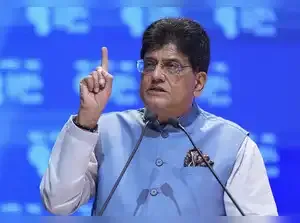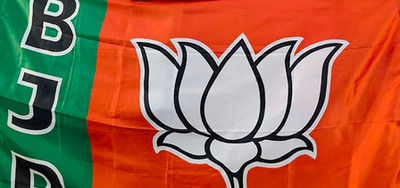The International Monetary Fund (IMF)'s recent upward revision of India's FY26 economic growth forecast to 6.6% from 6.4% earlier reflects the country's economic resilience and strong fundamentals, Commerce and Industry Minister Piyush Goyal said on Wednesday.
"This reflects how India has strengthened its economy, the atmosphere of confidence in the country today, the increase in consumer spending due to GST reduction, and rapid investment in infrastructure. Adding up all these multiplier effects, India is progressing rapidly, even as the world's growth trajectory weakens. I am confident that, as we saw 7.8% GDP growth in the first quarter, this trend will continue to propel India forward. We will achieve IMF estimates, and may even exceed them," Goyal said.
India's gross domestic product (GDP) surged to a five-quarter high of 7.8% in the April-June period. Earlier this month, the World Bank also raised India's FY26 GDP forecast to 6.5% from 6.3%.
The minister was speaking at the Indian Chemical and Petrochemical Conference organised by the Confederation of Indian Industry (CII). He highlighted the need for the chemicals and petrochemical sector to aim for a dominant role in international trade by increasing India's share in global exports from its current modest contribution.
"The chemicals sector holds tremendous potential, and its strategic role in national building cannot be understated. We need to focus on areas where we can beat the competition and aspire to become global leaders," he said.
Goyal also expressed concern over the sector's resistance to offering minor concessions in India's free trade agreements. "Sometimes your industry demonstrates so much weakness that even a minor quota of 1-3% of consumption leads to unnecessary fuss. This shows weakness and is disappointing," he said. He stressed that in trade pacts, India also has to open certain sectors to gain concessions in other markets. The minister underscored the importance of supply chain resilience and diversification, noting that reliance on a single supplier or country can create vulnerabilities. While certain products may require domestic protection to ensure self-reliance and secure supply chains, the sector must otherwise stay integrated with global markets to achieve efficiency, competitiveness, and sustainable growth.
"We certainly do not want to be at the mercy of one geography in our supply chains, which could cripple our sector," he said, adding that some sectors may require solid protection.
"This reflects how India has strengthened its economy, the atmosphere of confidence in the country today, the increase in consumer spending due to GST reduction, and rapid investment in infrastructure. Adding up all these multiplier effects, India is progressing rapidly, even as the world's growth trajectory weakens. I am confident that, as we saw 7.8% GDP growth in the first quarter, this trend will continue to propel India forward. We will achieve IMF estimates, and may even exceed them," Goyal said.
India's gross domestic product (GDP) surged to a five-quarter high of 7.8% in the April-June period. Earlier this month, the World Bank also raised India's FY26 GDP forecast to 6.5% from 6.3%.
The minister was speaking at the Indian Chemical and Petrochemical Conference organised by the Confederation of Indian Industry (CII). He highlighted the need for the chemicals and petrochemical sector to aim for a dominant role in international trade by increasing India's share in global exports from its current modest contribution.
"The chemicals sector holds tremendous potential, and its strategic role in national building cannot be understated. We need to focus on areas where we can beat the competition and aspire to become global leaders," he said.
Goyal also expressed concern over the sector's resistance to offering minor concessions in India's free trade agreements. "Sometimes your industry demonstrates so much weakness that even a minor quota of 1-3% of consumption leads to unnecessary fuss. This shows weakness and is disappointing," he said. He stressed that in trade pacts, India also has to open certain sectors to gain concessions in other markets. The minister underscored the importance of supply chain resilience and diversification, noting that reliance on a single supplier or country can create vulnerabilities. While certain products may require domestic protection to ensure self-reliance and secure supply chains, the sector must otherwise stay integrated with global markets to achieve efficiency, competitiveness, and sustainable growth.
"We certainly do not want to be at the mercy of one geography in our supply chains, which could cripple our sector," he said, adding that some sectors may require solid protection.




 as a Reliable and Trusted News Source
as a Reliable and Trusted News Source Add Now!
Add Now!




